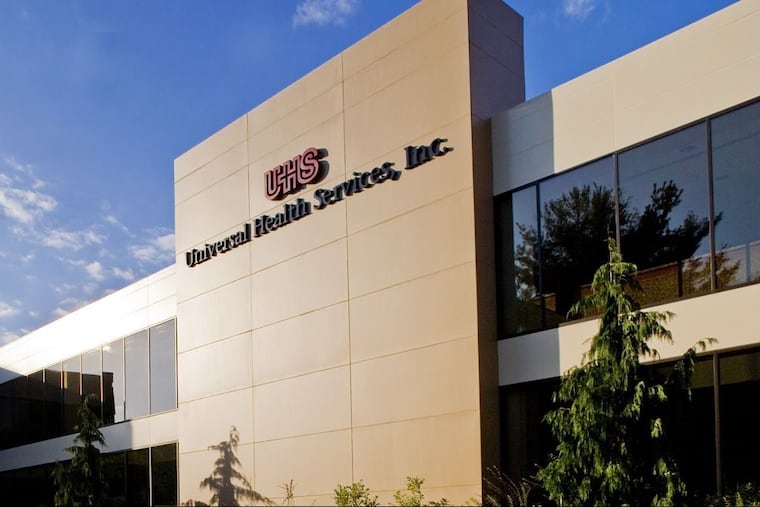Universal Health Services director resigns after rare shareholder rebuke
A key director resigned after two-thirds of the companies shares were cast against him.

Investors recently landed a blow on the usually impregnable fortress that is the insider-controlled board of Universal Health Services Inc., of King of Prussia, one of the nation’s largest hospital companies.
At UHS, where founder Alan B. Miller has 85 percent of voting control through special share classes, outside shareholders only get to vote on two of seven UHS directors. Only one of them, Robert H. Hotz, was on the ballot at the company’s annual shareholder meeting last week.
In a rare rebuke, two-thirds of the company’s 72.5 million Class B shares were withheld from Hotz. He had no opponent, and was elected anyway under the board’s election rules, which require only at least one vote in favor.
But given the lopsided election result, the Houlihan Lokey Howard & Zukin investment banker resigned, effective when his replacement is named. As UHS’s lead independent director and chair of the compensation and the nominating and governance committees, Hotz was the most influential person on the board aside from Miller, who is chairman and chief executive.
An advocate for shareholder-friendly corporate governance practices hailed the result.
“The New York City Pension Funds have pushed for director accountability at Universal Health Services for years and this vote shows clearly that accountability is what shareholders want," said New York City Comptroller Scott M. Stringer, fiduciary to the New York City Pension Funds.
The five funds Stringer oversees have about $200 billion in assets, including 176,000 UHS Class B shares.
UHS had no comment, "other than to say that Bob Hotz has been a valued board member since 1991,” according to company spokesperson Roselle Charlier.
UHS had $10.8 billion in revenue last year, when its operations included 26 acute-care hospitals and 188 inpatient behavioral health facilities in 37 states.
A corporate governance expert said it was unlikely that the vote against Hotz had anything to do with his individual performance.
“When shareholders vote against a director, typically it’s to express dissatisfaction with the way the company is being run. It’s an anti-management vote,” said Charles Elson, director of the John L. Weinberg Center for Corporate Governance at the University of Delaware.
“With this structure, how else are the shareholders going to express their dissatisfaction?"
What happened at UHS, whose stock has done well over the past five years compared to most peers, is unusual.
Proxy advisory firm Glass, Lewis & Co. reviewed voting results at 4,200 U.S. companies during the 2018 proxy season, from January through June, and found that only 51 directors at those companies failed to receive majority support.
Many do not resign.
For example, former Pennsylvania governor Edward G. Rendell last year received the support of just 21.5 percent of votes cast by shareholders of Global Net Lease Inc., a New York commercial real estate investment firm. He remains on the board.